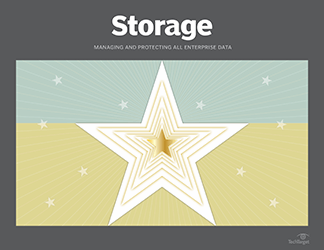PRO+ Premium Content/Storage
Access your Pro+ Content below.
Top 5 enterprise storage trends of 2018

This article is part of the Storage issue of February 2019, Vol. 17, No. 9
At this time of year, publications like to print stories that look back at enterprise storage trends of the past year and ahead to the new one. We do it ourselves in our hot technologies feature. These types of stories often make it seem like technology advances in a great leap on New Year's Day, with 2018 ideas suddenly dated and 2019 filled with brand-new data storage concepts and designs. In reality, the only major change many of us wake up to when a new year starts is a bigger headache. Expected changes take place incrementally and are often delayed or sometimes never happen at all. While predictions of future enterprise storage trends are always far less than certain, we can always safely say what we've learned from the past year. So, without ado, here are the top five things 2018 taught this storage pundit: 1. Dell EMC's strategy is a lot more Dell than EMC. That is to say it is built a lot more around servers and server virtualization than storage. You hear more talk out of Dell EMC -- the infrastructure division of Dell ...
Features in this issue
-
The best enterprise storage products of 2018
Get to know the 15 top enterprise storage products selected from a field of more than 100 in the 'Storage' magazine and SearchStorage annual Products of the Year competition.
-
A secondary storage management answer to mass fragmentation
A study finds mass secondary data fragmentation across storage silos is negatively affecting IT staff morale and the ability of enterprises to comply with regulations.
News in this issue
-
Top 5 enterprise storage trends of 2018
Dave Raffo won't pretend to know what 2019 will bring to the world of enterprise data storage, but he does know what he learned while following the data storage industry in 2018.
Columns in this issue
-
Cloud repatriation and the trend away from all things cloud
Companies are starting to backtrack when it comes to their enthusiasm for public clouds. More and more are bringing workloads and storage resources back in-house.
-
Data protection systems must address GDPR, ransomware concerns
Backup products don't have a granular enough understanding of data to scan or analyze it effectively and fully meet today's privacy and security requirements.
